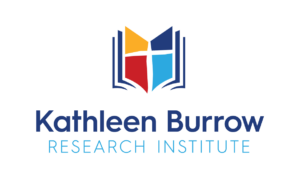Kathleen Burrow Research Institute

The Kathleen Burrow Research Institute is a research unit within CSNSW.
- It conducts and publishes research on contemporary issues in school education to promote the advancement of education in all Australian school sectors.
- It produces research that is intellectually rigorous, politically non-partisan and informed by the Catholic faith.
As part of this mission, its research promotes the benefits of Catholic education and related issues by going behind the headlines and commonly-held views.
The work of the Institute provides an evidence base to support Catholic schools in NSW:
- in advocating for best practice in all schools, particularly in Catholic education
- by informing and engaging with sector leaders and policy-makers.
About Kathleen Burrow
Kathleen Burrow (1899-1987) had a strong presence in the history of Catholic education and the Catholic Church in the 20th century.
She came from humble beginnings, growing up in a simple cottage with a dirt floor in Mudgee, and:
- was educated at St Matthew’s Convent of Mercy School, Mudgee
- attended the University of Sydney
- graduated with a Bachelor of Arts
- was a founding member of the University Catholic Women’s Association.
Career
She began her work in education as a teacher in a Sydney school. It was there she developed a focus on physical education in schools. She identified a particular need for this at orphanages and disadvantaged schools in Sydney.
Subsequently, she founded the Graham-Burrow School of Physical Education, providing exercise, deportment and dancing classes in Catholic schools throughout Australia for forty years.
Shen then moved to leadership in public life, becoming President of:
- the Legion of Catholic Women, Archdiocese of Sydney (1949-59)
- the Australian Council of Catholic Women (1957-59).
She was also:
- the Australian representative (1957-65) on the World Union of Catholic Women’s Organisations
- appointed Member of the Most Excellent Order of the British Empire (MBE) in 1956
- awarded the Papal Cross Pro Ecclesia et Pontifice in 1977
- awarded the United Nations Peace Medal in 1976 and 1986.
Character
Kathleen Burrow embodies much of what it means to be a Catholic educator. She cared deeply for her Catholic faith. She was:
- a caring mentor
- a highly principled and forthright advocate
- a superb communicator
- an organiser who `promoted social harmony often among divergent groups’.
She was described by one of her three children as, ‘a formidable lady with a formidable intellect’ and a very commanding presence.
In her work, she was determined and unrelenting. Toward her children, she:
- was supportive and encouraging with their aspirations
- helped them to pursue their own goals and passions
- instilled in them her own intense work ethic and passion for worthwhile causes.
Dedication
Throughout her life, she demonstrated incredible strength and resilience. Despite her own challenges, which included severe rheumatoid arthritis later in life, she continued to give what she could to Catholic missions with her time, efforts and money.
Kathleen Burrow’s dedication to her Catholic faith, family, work, education and the underprivileged makes her an outstanding example and exceptional patron for the Kathleen Burrow Research Institute.
Inaugural Kathleen Burrow Research Institute Annual Lecture
On 26 May 2021, Archbishop Anthony Fisher OP delivered the Inaugural Kathleen Burrow Research Institute Lecture.
The Archbishop explored the challenging topic of the impact of secularisation on Catholic education.
His lecture serves as a call to Catholic educators to continue to build a more Catholic culture in Catholic schools.
To read the lecture view the Proliferation of Secularism document.
Publications
Browse our list of publications to find a range of research and advocacy work.
- Public Savings from Non-Public Schools
- Patterns and developments in single-sex schools
- HSC Public Reporting Reform
- Valuing School Reports – The Parents’ View
- The Case for Catholic Schools – Volume 1 and 2
- School’s in, School’s out – says who?
- Better, Smarter Regulation for Catholic Schools in NSW
Visit our resource library for more research and reports.